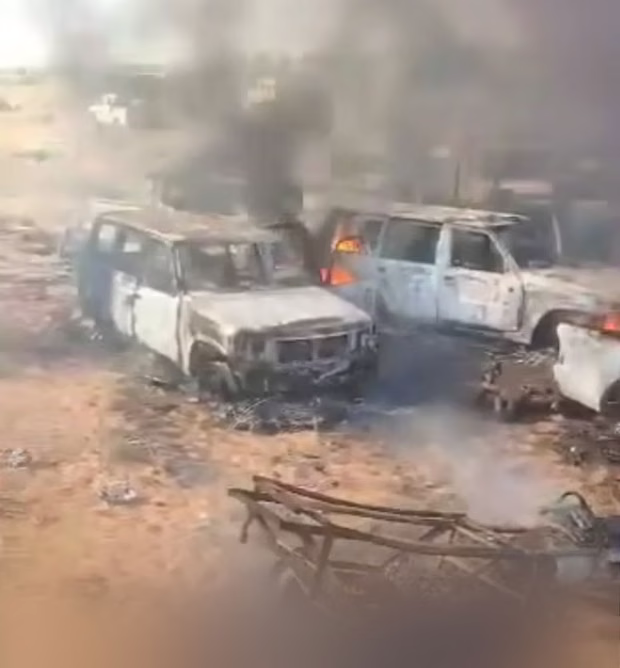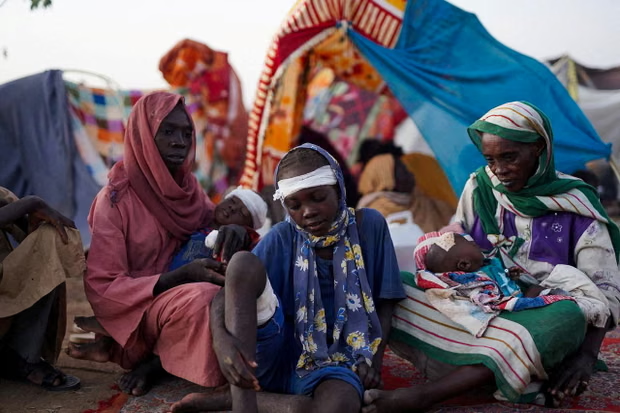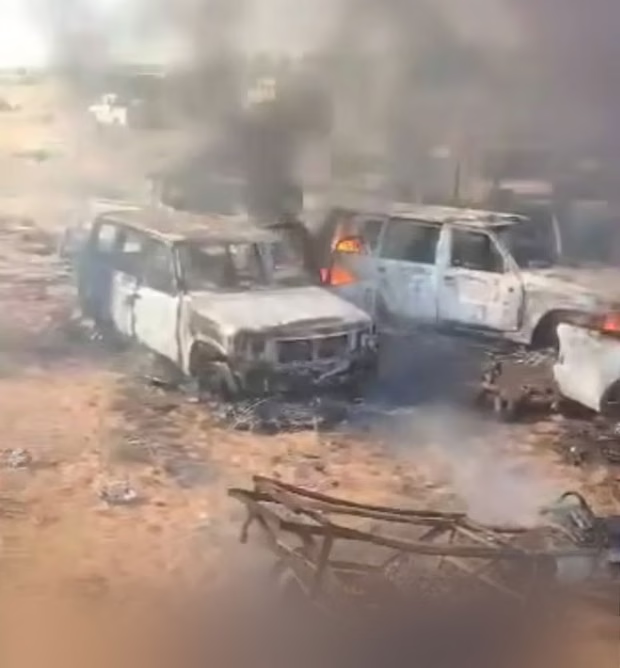Grave allegations of ethnically driven mass killings and atrocities have surfaced from El Fasher, the capital of North Darfur, after the paramilitary Rapid Support Forces (RSF) seized control of the city over the weekend.
Footage circulated by local activists reportedly shows an RSF fighter—previously linked to civilian executions in other occupied regions—shooting unarmed civilians at close range. Additional videos shared by pro-democracy groups depict dozens of bodies and burned-out vehicles scattered across streets, though independent verification of the material remains pending.
The Joint Forces, a coalition aligned with Sudan’s national army, accused the RSF of executing over 2,000 unarmed civilians in recent days, labeling the events a systematic campaign of extermination.

In a damning statement, researchers from the Yale Humanitarian Research Lab warned that El Fasher “appears to be undergoing a deliberate and organized campaign of ethnic cleansing” targeting non-Arab Indigenous groups such as the Fur, Zaghawa, and Berti communities. Satellite imagery reportedly reveals evidence of door-to-door killings, forced displacement, and widespread destruction.
Nathaniel Raymond, the lab’s executive director, compared the scale of violence to the first 24 hours of the Rwandan genocide, noting visible blood-red discoloration in satellite images—suggestive of large-scale executions. “We are witnessing the early stages of a wave of violence unprecedented in recent memory,” Raymond said.
The RSF has claimed victory in El Fasher, announcing that it had taken the army’s main base and “liberated the city from mercenaries and militias.” However, Sudan’s army chief, Gen. Abdel Fattah al-Burhan, admitted his troops had withdrawn to “a safer location,” effectively conceding control.

Meanwhile, the UN Human Rights Office reported credible evidence of summary executions of fleeing civilians, many apparently targeted for ethnic reasons. Videos circulating online show dozens of unarmed men shot dead or surrounded by RSF fighters accusing them of supporting the Sudanese army.
Efforts by news agencies to reach residents have failed due to a communications blackout, which includes the suspension of satellite networks—leaving the true extent of the atrocities in El Fasher uncertain but deeply alarming.



